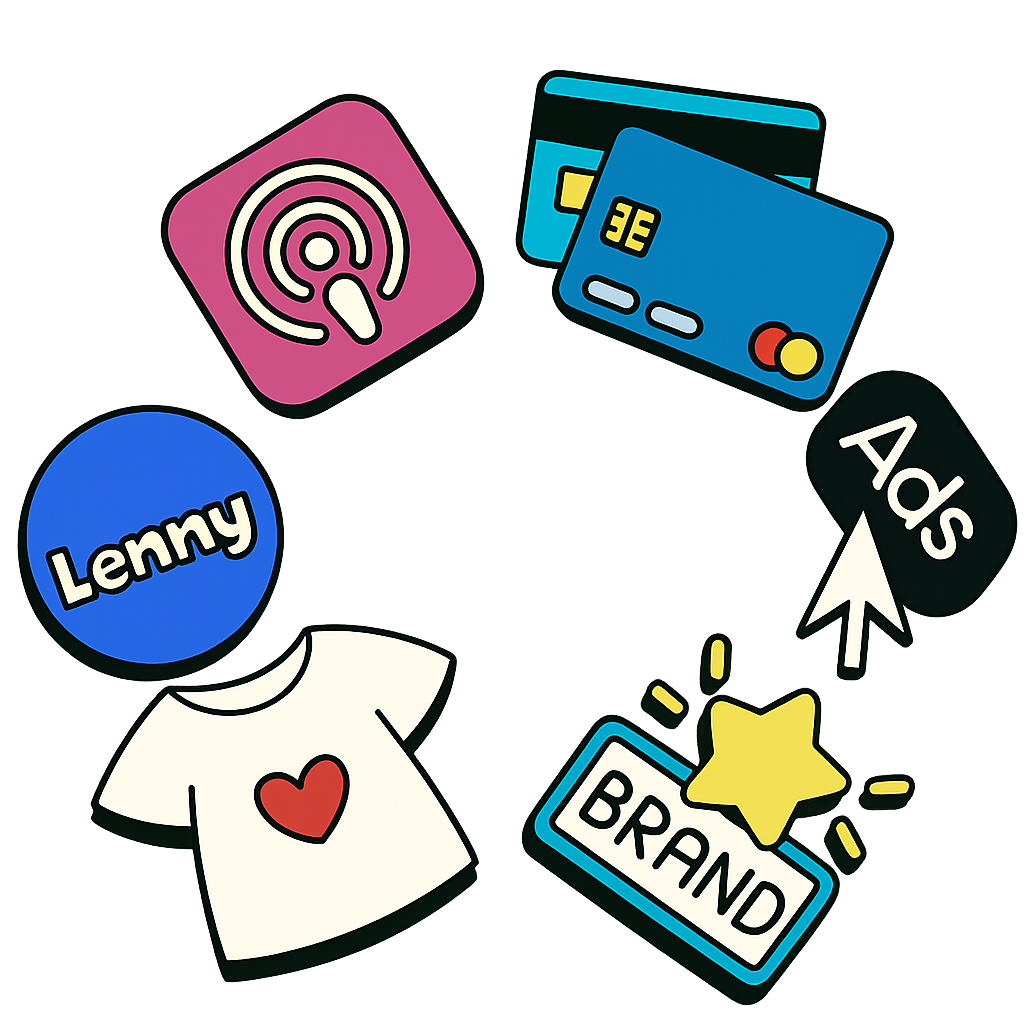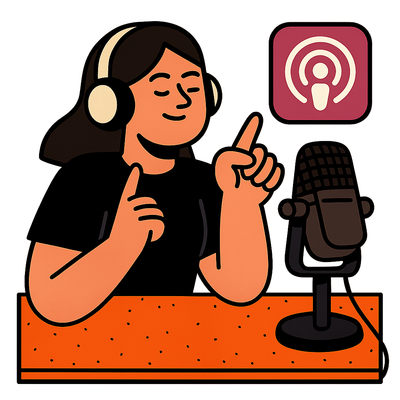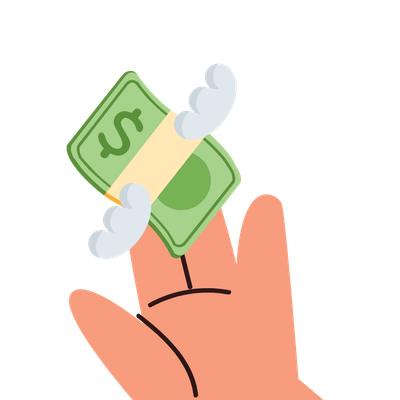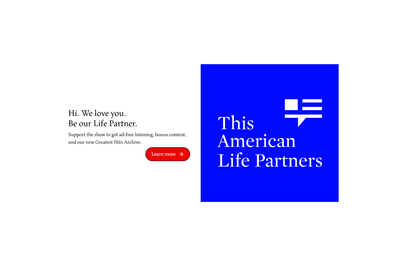Monetization Strategies for Independent Podcasters

Preface: There are plenty of people telling great stories on all platforms and media. This advice is for independent podcast creator where the podcast IS the product, it's their number 1.
To come back to this - it's fair to get paid for making a great independent podcast.
Though many podcast creators wait for their audience to grow before thinking about the money side.
Even if it’s enough money to cover basic expenses like audio or website hosting, equipment, and other subscriptions that help you get the show out.
You don’t have to have to treat the podcast as a lead generator for another business or another way that content can be monetized.
If you enjoy making the podcast and you have one or more regular listeners, why not think of the podcast as the product?
In our experience, people often do heaps of work to make the podcast episodes only to then create derivative content - like bonus episodes and newsletters - that they charge for. This is giving the best stuff away for free and charging for the rest.
Let’s explore several effective monetization methods tailored for independent podcasters.
1. Listener Support Platforms
- Engage your audience by allowing them to directly contribute to your podcast.
- Platforms like Lenny.fm offer a simple way for listeners to support multiple podcasts through a single subscription.
- Easy setup and flexible payout options, including PayPal and Stripe.
- Money goes directly to creators With minimal fees.
Engaging your audience directly for support fosters a sense of community and investment in your content.
We designed Lenny.fm from a podcast creator and listener perspective, because we make podcasts and listen to them!
It’s a simple revenue stream without requiring additional content creation. Listeners can support multiple podcasts with a single subscription, and funds are distributed accordingly. For creators, setting up is straightforward, and payouts can be requested via various methods, including PayPal and Stripe.
2. Apple Podcasts Subscriptions
- Offer exclusive, ad-free content to subscribers in exchange for a monthly fee.
- Provide access to back catalogs or premium episodes to enhance listener loyalty.
- Requires enrollment in the Apple Podcasters Program, and a yearly fee of US$19.99, which can vary slightly depending on your country.
- Apple takes 30% of each subscription for the first 12 months after a listener joins, then drops it to 15%.
From our experience
We used it for our podcast production company, nearly.com.au, and offer ad-free episodes for AU$3.99 a month.
To manage this we would upload a seperate file to Apple Podcasts Connect and make sure the episode number matches the free version hosted on Omny Studio.
With an audience of about 20k we have less than 100 paying subscribers, but we didn't promote it at all.
If you’re registered with the Apple affiliate program you can create an affiliate link for your own podcast subscription and get commission AND the subscription revenue when listeners sign up.
More here - Apple Podcasts Subscriptions
3. Print-on-Demand Merchandise
- Sell branded merchandise through platforms like Redbubble, Teepublic, Society6 and Gelato.
- No upfront costs or inventory management required.
- Items like t-shirts, mugs, and stickers double as revenue streams and marketing tools.
As these companies are doing all the work, they get most of the revenue. You can raise prices to increase the money you end up with.
The good thing is once you set it up you don’t have to look after it or post anything.
Worthwhile if you’ve got a website or other online place that your audience visits. Drop a link there with some information and see how it goes!
4. Affiliate Marketing
- Earn commissions by promoting products or services related to your podcast.
- Affiliate links will track purchases.
- Best for podcasters who review products or collaborate with guests.
For these to work well you need to either have a great idea about what your audience might buy or find some that pay high commission. A good place to promote the links is essential too - article, support page or similar.
Also worth letting your audience/visitors know you get a commission too.
Here’s an overview from Shopify.
To get started, find an affiliate link provider, check out the companies/products they represent and start an account.
5. Sponsorships
You probably have a good idea how these work, so I’ll say this - they can be time consuming to sort out, hard to measure, hard to keep if there’s not noticeable results for the sponsor’s business and you’re directly competing against Meta and Google.
- Partner with brands that align with your podcast's niche, content, listener location and/or demographics.
- Create a media kit outlining listener demographics and engagement metrics, two pages. Think about what the business wants to hear and what they care about (making more money back than they spent on the sponsorship).
- Figure out what you can do for a sponsor. This could be ad spots, direct endorsements, adding links to show notes, social posts or other ways to tell your audience that they should buy the sponsor’s product/s.
Relationships and communication are massive with these agreements. You’re getting paid to keep things happy and productive for the sponsor.
Make sure you’re prompt and clear with the reporting back about how much reach the brand received. This will help when the time comes to ask them about renewing the arrangement.
Which reminds me, have a contract. At a minimum, it will set expectations for the arrangement so neither side is unhappy.
Above everything mentioned, think of the audience. By default, suddenly having ads or a sponsor invading their leisure-listening time is a negative experience for the audience.
They choose to spend time with your show over the millions of other things they could be doing, which includes talking to the people they love most in the world.
Please don’t jeopardise that for a few hundred or few thousand clams.
6. Listener Donations
- Platforms like Buy Me a Coffee and Ko-fi Will handle donations.
From there it’s pretty straightforward.
You might to set up a Stripe account.
7. Programmatic Advertising
If you’ve got enough listeners this is an option. Your host network or ad agency runs ads on your show in ad spots.
It happens without you needing to do anything but you also get very little say over the ads, no say in what they sound like, and they generally bring in less money. You might get $25 per 1000 impressions, but the ad agency and other people take a cut. So you might get less than $10.
The ad spots might not get filled so you end up with nothing.
With any platform offering this, check the qualification criteria, the CPM (cost per mille, 1000) rate, fill rates, how they pay, where the audience has to be (some are US only) and ask around about other creators’ experience.
Lastly, like sponsorship, think of your audience. At their worst, programmatic ads are obnoxious radio ads stuffed into a lovely podcast that your audience chooses to spend time with.
It’s a big change to jam these ads in to make a few dollars.
8. Live Podcast Events
- Sell tickets for in-person or virtual podcast events.
- Consider costs such as venue rental, equipment, and marketing.
- Great for audience engagement and community, and selling merch.
Hosting live events can deepen listener engagement and generate income through ticket sales and merchandise. However, it's important to consider associated costs, including venue rental, equipment, staffing, and marketing. Venue rental fees can vary significantly based on location and capacity, and additional expenses like sound equipment and promotional materials can add to the overall cost. Careful budgeting and planning are essential to ensure profitability.
10. Premium Content Offerings
- Record, edit and sell bonus episodes or exclusive content.
- Start a paid newsletter, write it regularly, market it, and keep it going.
These are time consuming.
While they seem like they're adding value because the audience is getting more of a similar, for lack of a better phrase, 'media product,' they often end up devaluing the thing you care about - the podcast!
If it works, great.
However here's why I think it's better to approach cautiously.
If the podcast is the product - the thing you spent hours thinking about, talking to people about, crafting the concept, buying the equipment and excitedly sharing with the world - why shouldn't it be diluted by derivative content that's not up to the same standard?
Meeting the audience where they choose to engage is great, and for professional "content creators" that's the norm. But if you're a podcast creator first, without the time to dedicated the time and effort to the other chosen platforms, it can start to work against you.
Which to choose?
My advice, more than one.
If you’re hesitant, try the more passive options first - donations/listener support or print-on-demand merchandise use.
Asking your audience is helpful - “Interested in merch? Live event? Early access to episodes?”
Keep your listeners front of mind. They trust you and empathise with what you’re doing.
For the work and insight you put into your podcast it’s totally fair to think, “wouldn’t it be great to get some money for doing this?”
No spam, just updates from Lenny.





